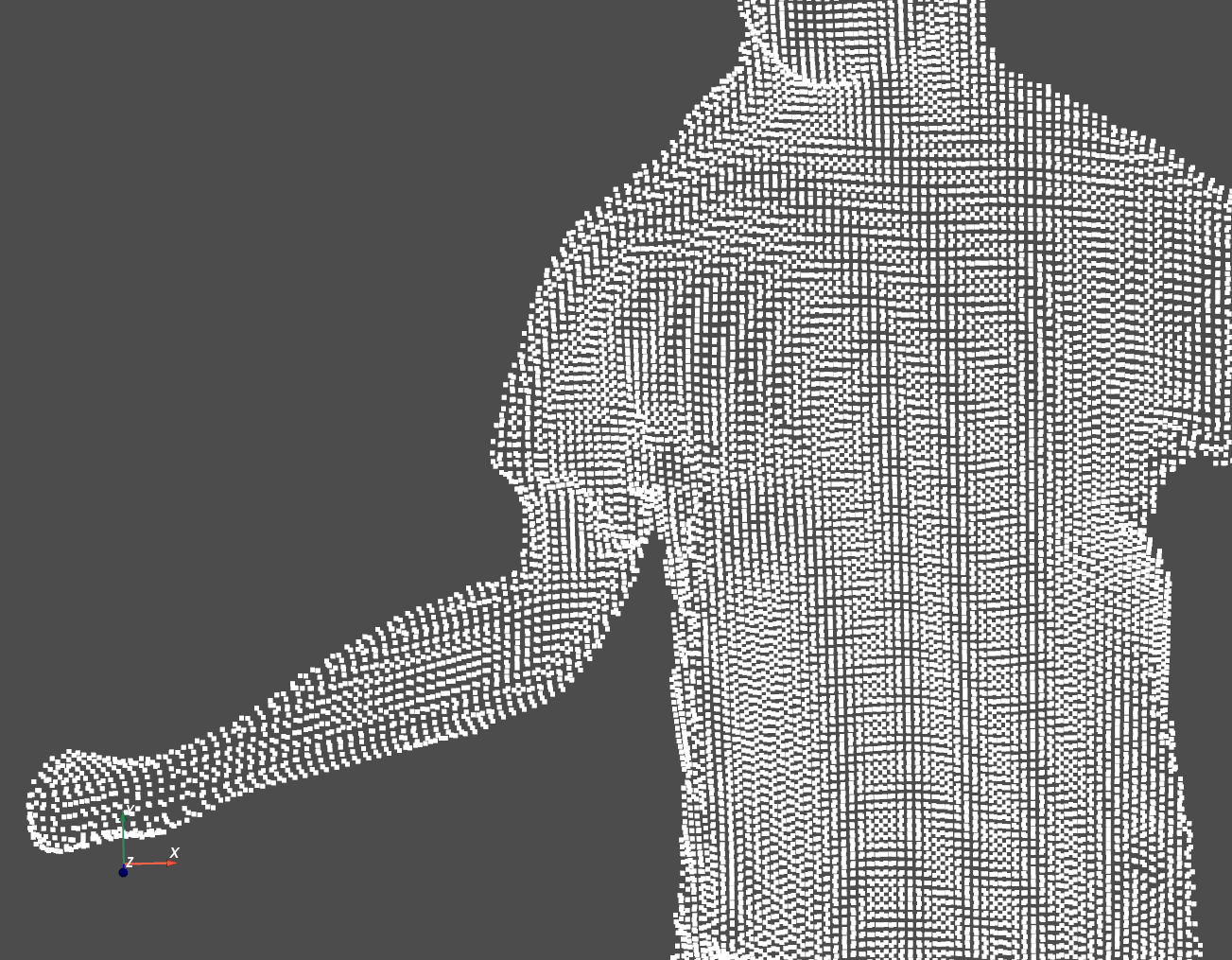@RohanChacko, I played around with this dataset and wasn't able to get delaunay_3d to give me an acceptable mesh to input into pymeshfix. @banesullivan, can you think of any other tools that might be able to perform a reasonable 3D triangulation of a point cloud?


Hi
I am pretty new to pyvista and was looking to convert a numpy (n,3) array to a watertight mesh. I have a pointcloud like this (zoomed in):
And I convert it to a mesh by:
But this is the result I end up with. There are significant holes in the reconstructed mesh:
I tried using
pymeshfixas pointed out in the other issues but was not able to fill the holes in the mesh. It looks likedelaunay_3dcreates triangles that overlap? Is there a way to reconstruct a watertight mesh for the same?The pointcloud and mesh are in: mesh_repair.zip